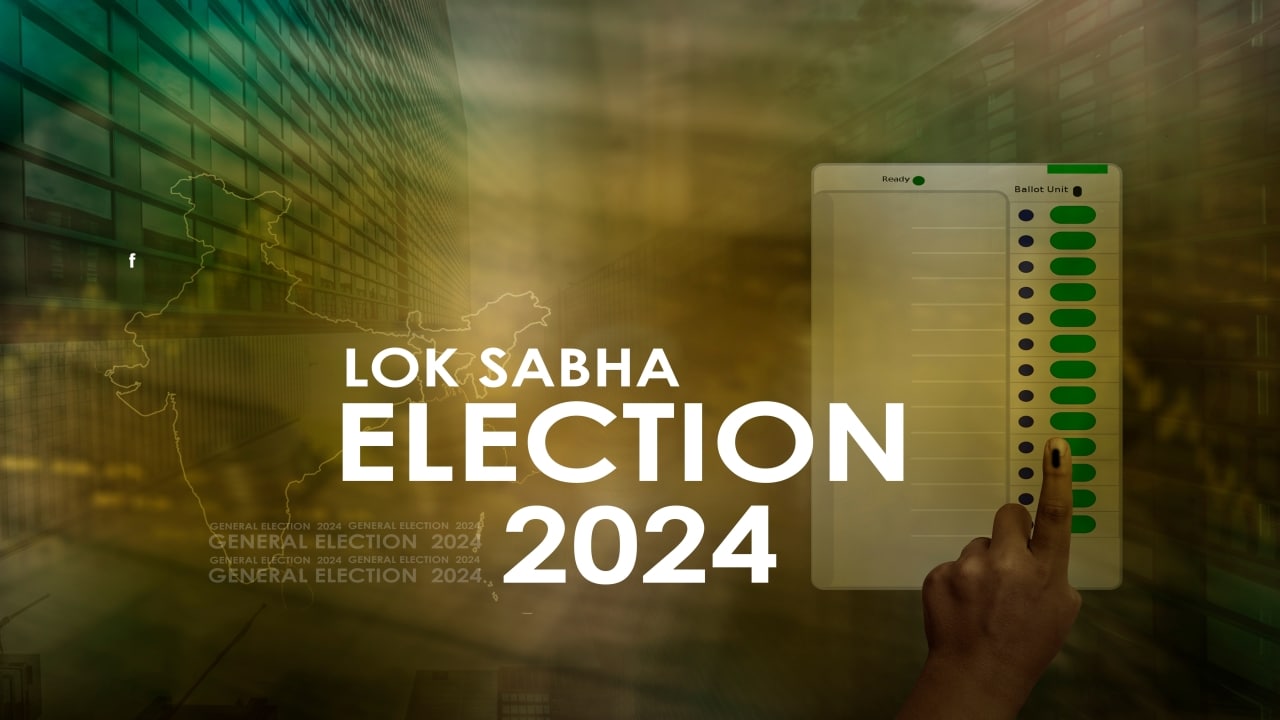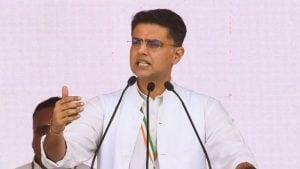The fourth phase of the Lok Sabha elections 2024 saw 96 constituencies across 9 states and the union territory of Jammu and Kashmir exercising their democratic right. This phase witnessed a voter turnout of 67.3% as against 69.9% in 2019.
Phase four marked the final showdown in the south, with Andhra Pradesh and Telangana casting their votes.
In Andhra Pradesh, both Lok Sabha and state assembly elections were held simultaneously where Chief Minister Jagan Mohan Reddy is seeking a second term. All 25 Lok Sabha seats in Andhra and 17 seats in Telangana went to polls. However, the electoral process was marred by controversies.
BJP candidate Madhavi Latha faced scrutiny after being caught on video asking burqa-clad women to lift their veil, sparking outrage and resulting in legal action against her. Additionally, incidents of violence, including an altercation involving a sitting MLA of the YSR Congress Party, tarnished the voting process.
In an interview with CNBC-TV18, Gopal Krishna Agarwal, spokesperson of BJP highlighted a surge in support for the party in southern states, attributing it to a desire for change and dissatisfaction with incumbent governments plagued by corruption allegations.
“If you look at southern states there is a big wave for BJP, there is a big support whether it is in Telangana or Tamil Nadu or even Kerala for that matter. There are people who want a change.
They have seen in North India where BJP governments are there, how the penetration of government schemes have gone down to the last person in a targeted way. They have seen how the growth is taking place whether it is in Uttar Pradesh or other states. People in the south want a change, they want to get rid of the corrupt governments whether it is DMK in Tamil Nadu or YSR in Andhra Pradesh. So, there is a big support for the BJP in the south,” Agarwal stated.
The Hindi heartland witnessed 35 constituencies going to polls across five states, notably Uttar Pradesh, Madhya Pradesh, and Bihar.
In UP, the Samajwadi Party battled to maintain its stronghold, with Akhilesh Yadav in contention. Madhya Pradesh saw 8 constituencies, including Indore, where the Congress candidate withdrew, prompting calls for voters to opt for “NOTA.”
In Bihar, the spotlight was on Begusarai, where Union Minister Giriraj Singh aimed for his third Lok Sabha victory. In 2019, Giriraj Singh won against Kanhaiya Kumar who is now a Congress candidate from Delhi.
Political analyst Sajjan Kumar highlighted Bihar as a state where BJP’s dominance might face a slight challenge due to candidate selection and anti-incumbency sentiments. Kumar stated, “Bihar is an interesting state because, besides Maharashtra, Bihar is one state where in BJP tally may take a slight dip.
One of the reasons is that perhaps in their overconfidence BJP fielded not that relatable candidates in certain constituencies and that is why the RJD candidate profile in certain constituencies is better. And that is why you find the anti-incumbency factor. Begusarai I am confident that despite all the talk, Giriraj Singh will sail through comfortably because of the demographic and Modi hype.”
In West Bengal, eight seats were up for grabs amidst a fierce battle between the ruling Trinamool Congress (TMC) and the Bharatiya Janata Party (BJP). Krishnanagar witnessed a particularly intense battle between TMC’s Mahua Moitra and BJP’s Amrita Roy.
Adhir Ranjan Choudhary, the only Congress MP from Bengal faced a tough fight from former cricketer Yusuf Pathan who is contesting on a Trinamool ticket. Adhir Ranjan is seeking to win his fourth consecutive Lok Sabha Election. However, sporadic violence was reported in some regions of the state today as well.
In Odisha, the state is voting for four Lok Sabha seats and 28 assembly constituencies. Naveen Patnaik-led Biju Janata Dal is trying to retain power in the state with a sixth straight term for the chief minister. The fight is for 147 assembly seats that will be voting in four phases with the first phase starting today. The BJP is hoping to form a government in the state for the first time on its own. The state has 21 parliamentary seats and the four seats voting today were won by the BJP in 2019 Lok Sabha polls.
Maharashtra, on the other hand, witnessed 11 constituencies voting, including the highly contested battle in Beed, where Pankaja Munde, daughter of late BJP stalwart Gopinath Munde, squared off against Bajrang Sonwane of the Nationalist Congress Party.
Watch the accompanying video for the entire discussion.









 Listen to the Article
Listen to the Article 
 Daily Newsletter
Daily Newsletter












